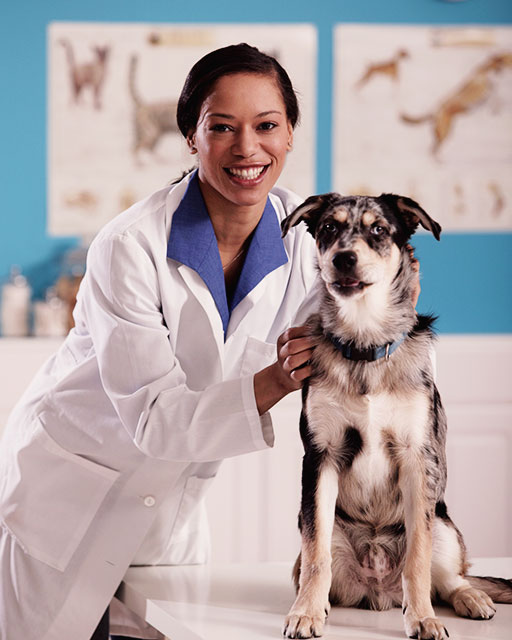
How to Choose a Vet
There are many points to consider when choosing your family veterinarian.
Below is a list of suggestions to keep in mind when making this important decision. Most importantly, do your planning before you are in an emergency situation and aren’t able to make a well-informed choice.
When choosing your family’s veterinarian use the same care and criteria that you would in selecting a physician or dentist for yourself and your family.
Think about what is important to you. Your veterinarian will be your pet’s obstetrician, pediatrician, orthodontist, endodontist, dermatologist, internist, surgeon, radiologist, anesthesiologist, endocrinologist, oncologist, and ophthalmologist!
Your goal should be to find the veterinarian who you believe can best meet your pet’s medical needs and with whom you feel comfortable in establishing a long-term relationship.
- Have a family discussion to decide what you feel is important to you in a veterinarian and the practice.
- If appropriate in your situation, ask your current veterinarian for recommendations; make sure that you obtain copies of your pets’ medical records for the new doctor, as well.
- Utilize this site’s Find a Veterinarian search or use other the Internet searches and yellow pages to locate veterinary practices in your area.
- Consult with family, friends, and neighbors who have a similar philosophy of pet care. Consider consulting with local pet businesses as well.
- To further narrow down your choices, visit practice websites to get a feel for the hospitals you may be considering.
- Set up appointments with the prospective practices, and prepare questions for the veterinarian and staff. Your questions might include the following:
o What are the practice hours–are they convenient for your schedule?
o Do they handle after-hours care on site, or are you referred to another hospital or specialist? Do they have established relationships with a referral hospital, for complicated cases?
o Will you be able to see the same doctor at each visit, if desired?
o Do they have capable and friendly support staff? Staff attitude frequently mirrors the veterinarians’ approach to clients and pets.
o What are their fees and billing / insurance protocols?
o Do they have adequate equipment on site(x-ray, ultrasound, lab equipment, anesthetic monitors, etc.), or do they make provisions for referrals for diagnostic work-ups?
o Special accreditation, such as AAHA (American Animal Hospital Association) certification is a good way to know that a practice meets certain standards of care; but, there are many practices without special certification that do an excellent job.
o Is the facility clean and odor-free?
In the end, the most important consideration is your comfort level.
If you feel welcome and your pet is treated in a kind and professional manner, you are probably making a good decision!
